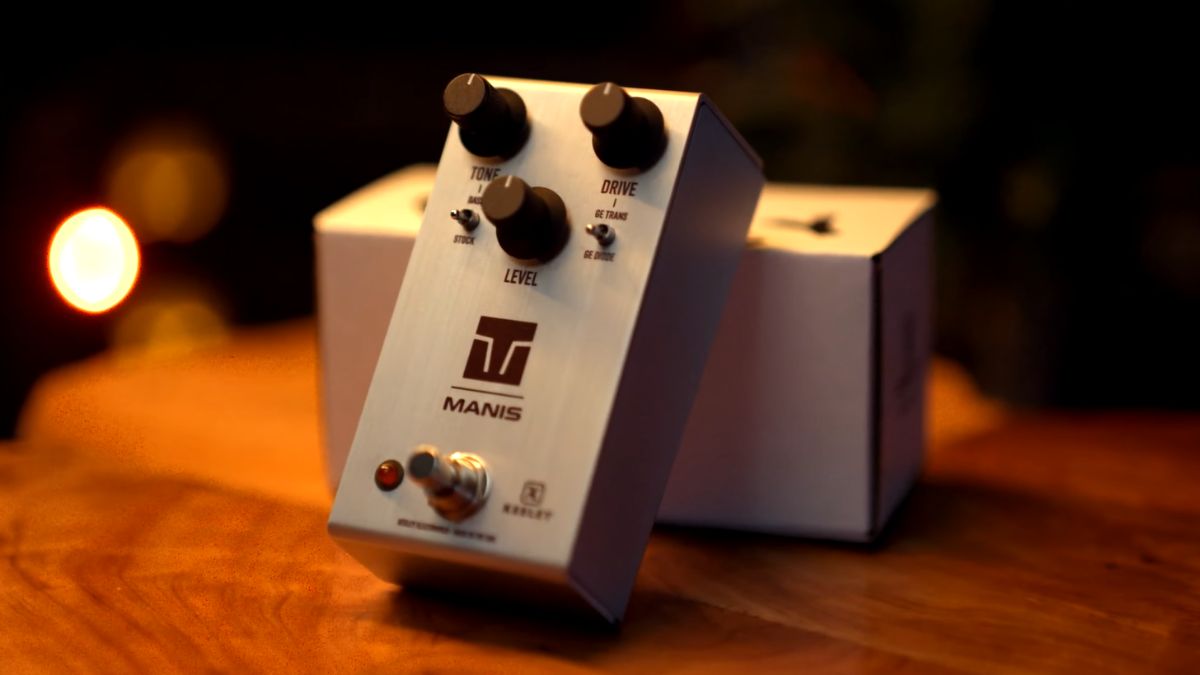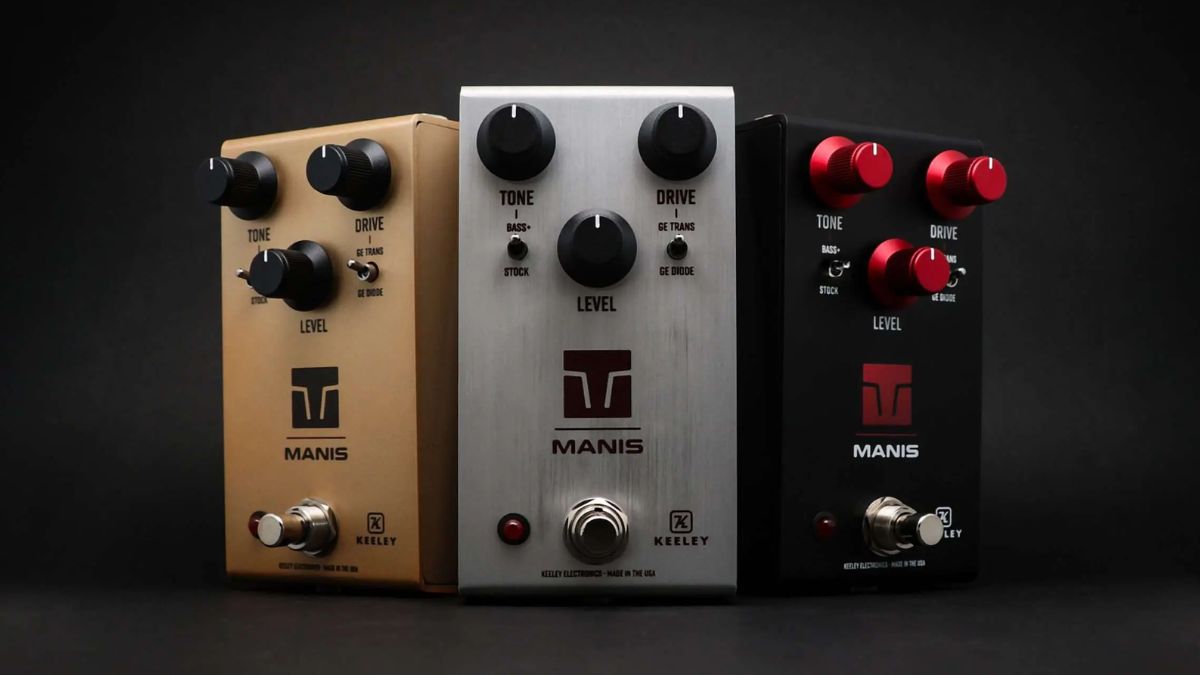“This is for the guys that think they know everything about the clone, yet they just want to have a little bit more”: Keeley Electronics adds more compression, suppression, bass, and headroom to the Klon Centaur recipe
Robert Keeley’s fingerprints are all over the Manis as the pedal boffin delivers a pedal that can serve faithful Klon tones, and plenty more punch beyond it

Keeley Electronics has been making a lot of noise online about its new overdrive pedal, the Manis, and it’s easy to see why. More than just a Klon copy, it packs four forward-thinking features to stick its head above the densely populated parapet.
Though able to “nail the original Klon sound,” this is no mere rehash – it’s the first of its kind to combine the magic of Russian germanium NOS transistors and diodes to leave its rivals eating the dust of its extra compression, suppression, and earth-shaking bass.
Like the mythical Centaur, it delivers the same three-pronged controls – for Tone, Level, and Drive – but chucks two miniswitches into the mix for good measure, which is where its unique character comes into play.
The first toggle switch empowers players to switch between diode and transistor modes, unfurling the classic recipe via the former, and something altogether more hairy with the latter.
The pedal has been intensely A/B checked with a reference Klon so that its diodes were as authentic as possible, while a degree of familiarity translates over to the transistor-led reimagining of the pedal.
A bass boost, engaged via a second toggle switch, drops the low-end frequency response by an octave and simultaneously boosts every part of the signal by 3 dB. It’s a boost, Robert Keeley says, that’s ”enough to make any single-coil feel proud of itself.”
So it isn’t missing out on all the fun, the main footswitch also has a trick up its sleeve; it can shimmy between true and buffered bypass switching.
All the latest guitar news, interviews, lessons, reviews, deals and more, direct to your inbox!
Rounding out the pedal’s quartet of innovative features is its power supply upgrades. The pedal can operate at the standard 9V, but those who want to hook it up to double the power can do so in a quest for more headroom. Considering many Klon users are drawn to the low-drive pedal for employment as a transparent boost, that headroom-doubling feature will likely get a good few readers hot under the collar.
“This is for the tone snobs out there,” says Robert Keeley. “This is for the guys that think they know everything about the clone, yet they just want to have a little bit more.”
Though there are some caveats, he confesses.

“As with all things Keeley, I couldn’t leave it just as it was. With the Klone circuit, you have to be very careful, because any changes to those germanium diode clippers are going to have a profound result.
“I found a magic ingredient with these Russian transistors. I couldn't have simulated it any other way. We just got lucky with a great sound, and I find the 3 dB bassist to be remarkably well voiced.”
Phish's Trey Anastasio, through his guitar tech Justin Stapler, has been involved with the pedal from the outset, and it's even ended up on the pedalboard of his acoustic guitar rig.
“What a challenging environment for an overdrive pedal to be in,” Keeley smiles, “especially when it's coming from a piezo pickup. That's going to be a pretty bright, strident signal, so if you‘ve got an overdrive pedal that sounds great with an acoustic guitar rig, what more could you ask for?
“He was, in fact, using two of them,” he adds. “One in the typical setting and one in the Keeley setting.”
Keeley Electronics’ take on the Klon, one of the most sought-after pedals in the business, was never going to be a simple copy-and-paste job. With a faithful recreation of Bill Finnegan’s pedal sitting alongside a more saturated and compressed version, which can be made to sound even fuller with the bass boost, and benefit from increased headroom by switching to 18V, it makes a noteworthy addition to the Klon-alike market.

For those wanting the right aesthetic, the Manis is available in three distinct colorways at launch. Choose from Standard Brushed Silver and the Guitar Center exclusive Gold finish for more traditional Klon stylings, or the PGH exclusive Black for a more gothic-looking OD.
The Keeley Manis is available now for $199.
Check out Keeley Electronics for more.
In other Klon-alike news, Bill Finnegan has filed a lawsuit against Behringer for its Klon copy, which he says is a “blatant counterfeit of Klon’s legendary pedal.”
A freelance writer with a penchant for music that gets weird, Phil is a regular contributor to Prog, Guitar World, and Total Guitar magazines and is especially keen on shining a light on unknown artists. Outside of the journalism realm, you can find him writing angular riffs in progressive metal band, Prognosis, in which he slings an 8-string Strandberg Boden Original, churning that low string through a variety of tunings. He's also a published author and is currently penning his debut novel which chucks fantasy, mythology and humanity into a great big melting pot.
You must confirm your public display name before commenting
Please logout and then login again, you will then be prompted to enter your display name.



